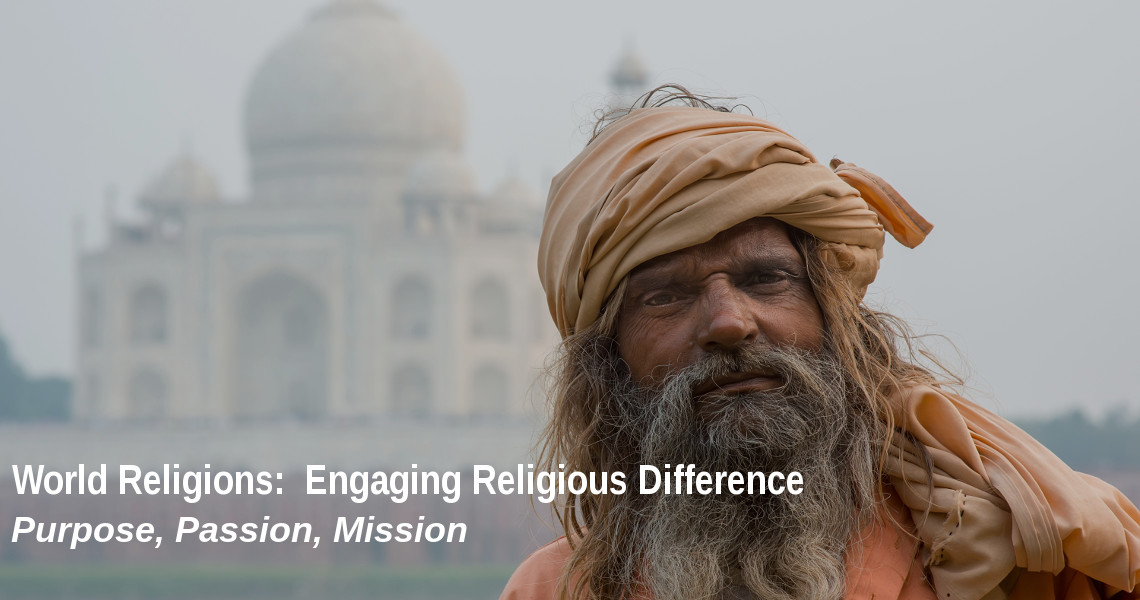DEPARTMENT OF WORLD RELIGIONS
Explore World Religions
Academic Programs
Dual Enrollment Academies
Certificate Programs
Associate Certificate programs
Undergraduate Certificate programs
Degree Programs
Associate Degrees
Bachelor Completion Degrees
- Major in Buddhist Studies
- Major in Hindu Studies
- Major in Islamic Studies
- Major in Judaic Studies
- Major in New Religious Movements
Bachelor 2+2 Degrees
Masters Degrees
Doctoral Degrees
Course Descriptions
Undergraduate Courses
Graduate Courses
- BUD - Buddhist Studies
- HIN - Hindu Studies
- ISM - Islamic Studies
- JUD - Judaic Studies
- NRM - New Religious Movements
- REL - Religion Studies
Resources
Contact
- Still Have Questions?
- Contact Admissions
Calendar

Welcome
The Department of World Religions has programs that lead to a Certificate in Religion, an Associate of Religion degree, a Bachelor of Religion (completion) degree, and a Master's degree in Religion. We desire to see every graduate become equipped to join God’s mission to transform people and places from all tribes, tongues and religions through Jesus Christ, as well as to mobilize others to also engage in God’s mission. God’s gracious invitation to the church is to join him in that mission of redemption -- the Department of World Religion will teach you how to understand religious peoples.
Why World Religion?
Globally, religious diversity is on the rise. Travel, immigration, and the Internet allow adherents of different faiths to interact and exchange ideas like never before. With the click of a button, we can be in contact with individuals on the other side of the world who have radically different theologies and practices than our own. How can we understand the complex and deeply personal nature of other religious traditions and how can we effectively communicate the gospel to people whose religious beliefs are so foreign to our own?
The Department of World Religions seeks to provide students with the tools to engage those from non-Christian religious traditions. It does so by exposing students to the belief systems of traditional religions such as Hinduism, Buddhism and Islam, and also new religious groups and sects that are less well known. Becoming conversant in the worldviews of others equips students to find points of contact for meaningful discussion and inroads to share the gospel in relevant ways.
Why Missional University?
The Study of World Religion at Missional University is based on the six core values of the University:
Biblically Based:
The study of world religions is based on the biblical principles of having no other gods than that of the God of the Bible: I am the Lord your God, who brought you out of Egypt, out of the land of slavery. You shall have no other gods before me (Deut. 5:6-7). And of salvation being available only through the person and work of the Lord Jesus Christ: I am the way, the truth and the life. No one comes to the Father, but through me (John 14:6). Our desire is to reach adherents of non-Christian religious traditions with the gospel of Jesus Christ.
Missionally Driven:
The missio dei [mission of God] informs and is the background of the study of world religions. The courses examine how to minister to individuals throughout the world who are seeking God through the means of various religious movements. The program focuses on gaining knowledge of world religions for the purpose of effectively sharing the gospel with them.
Interculturally Focused:
The study of world religions uses cross-cultural approaches to understand the worldview of adherents of non-Christian religions. World Religion Studies recognizes that cultural, ethnic and national differences will play prominent roles in how individuals understand the nature of God and humans, ethics and the purpose of life. Students will be exposed to those who see the world differently than they do and in doing so become aware of the role that culture plays in the religions of the world.
Contextually Informed:
The study of world religions addresses the historical and theological development of non-Christian religious traditions. Courses offered by the department investigate the spread and influence of non-Christian religions, their methods of socialization, the historical context from which they emerged and factors that contribute to their success.
Practically Minded:
The study of world religions offers insights and techniques that teach students how to apply their knowledge into practice and serve individuals in diverse world religions.
Experientially Transformed:
The study of world religions introduces students to adherents of non-Christian worldviews and important texts that are considered sacred by them. Students will have opportunities to meet and listen to the stories and lived-experiences of adherents of non-Christian faith traditions. They will also use diverse academic media, including documentary films and videos and exercises, to approximate the lived experience of adherents of non-Christian religions.
